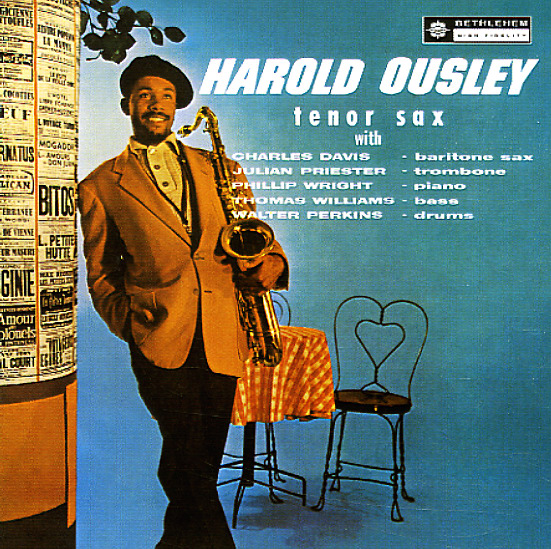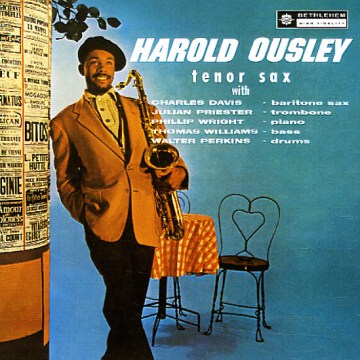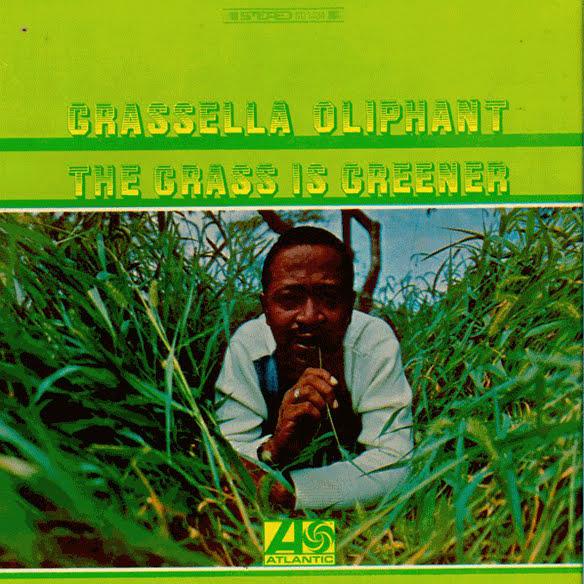SPOTLIGHT ON HAROLD OUSLEY –
Get your hands together, let’s give a warm applause for Harold Ousley. The tenor saxophonist, born in Chicago in 1929, worked under the radar for much of his professional life. The names Ousley is affiliated with nonetheless say a lot about his capabilities. Ousley played with Billie Holiday, Gene Ammons, Miles Davis and Bud Powell. He operated in the r&b field in the 50s, recording with Dinah Washington and cooperating with Ruth Brown, Billy Williams and Jerry Lee Lewis. Ousley is featured on a couple of records by organist Brother Jack McDuff in the 60s and made a notable appearance on drummer Grassella Oliphant’s The Grass Roots in 1967, contributing no less than five tunes. He debuted as a leader on Bethlehem in 1960 with Tenor Sax, featuring baritone saxophonist Charles Davis, a solid album of mainstream jazz. See my review here.
It took Ousley twelve years to record a sophomore effort. Ousley added greasy funk to his mainstream jazz menu on The Kid (Cobblestone 1971) and Sweet Double Hipness (Muse 1972/80), which display a remarkable ability to sustain the pocket. All in all, Ousley’s discography consists of six albums as a leader. During the 1970s, Ousley was subsequently part of the Lionel Hampton and Count Basie bands. Ousley’s style is soulful, flexible and witty. His resonant and husky sound is very attractive. Attractive is a term that’s not inappropriate for some of Ousley’s record sleeves as well:
All joking and wanking apart, there has always been plenty of competition in the tenor sax department, which might have been one of the reasons why Ousley made a career switch in the 80s. He hosted the cable tv show Harold Ousley Presents and developed music therapy formats for the educational system.
Although his book isn’t extended, Ousley’s writing skills stand out. Both Oliphant and McDuff took a liking to his tunes, respectively recording five (on one album) and four Ousley compositions. He effectively combined quirky blues lines with stop time on One For The Masses and Mrs. O from Grassella Oliphant’s The Grass Roots. Ousley wrote a couple of nifty, danceable Latin-flavored tunes. Haitian Lady appeared on both Oliphant’s album and McDuff’s Walk On By, which also features the lively Carribean groove For Those Who Choose. Also from Oliphant’s album is the avant-leaning The Descendant, which wouldn’t have been out of place on some of the progressive records on Blue Note in the mid-sixties.
Ousley recorded his final album Grit-Gittin’ Feelin’ on Delmark in 2000. He passed away in 2015.










